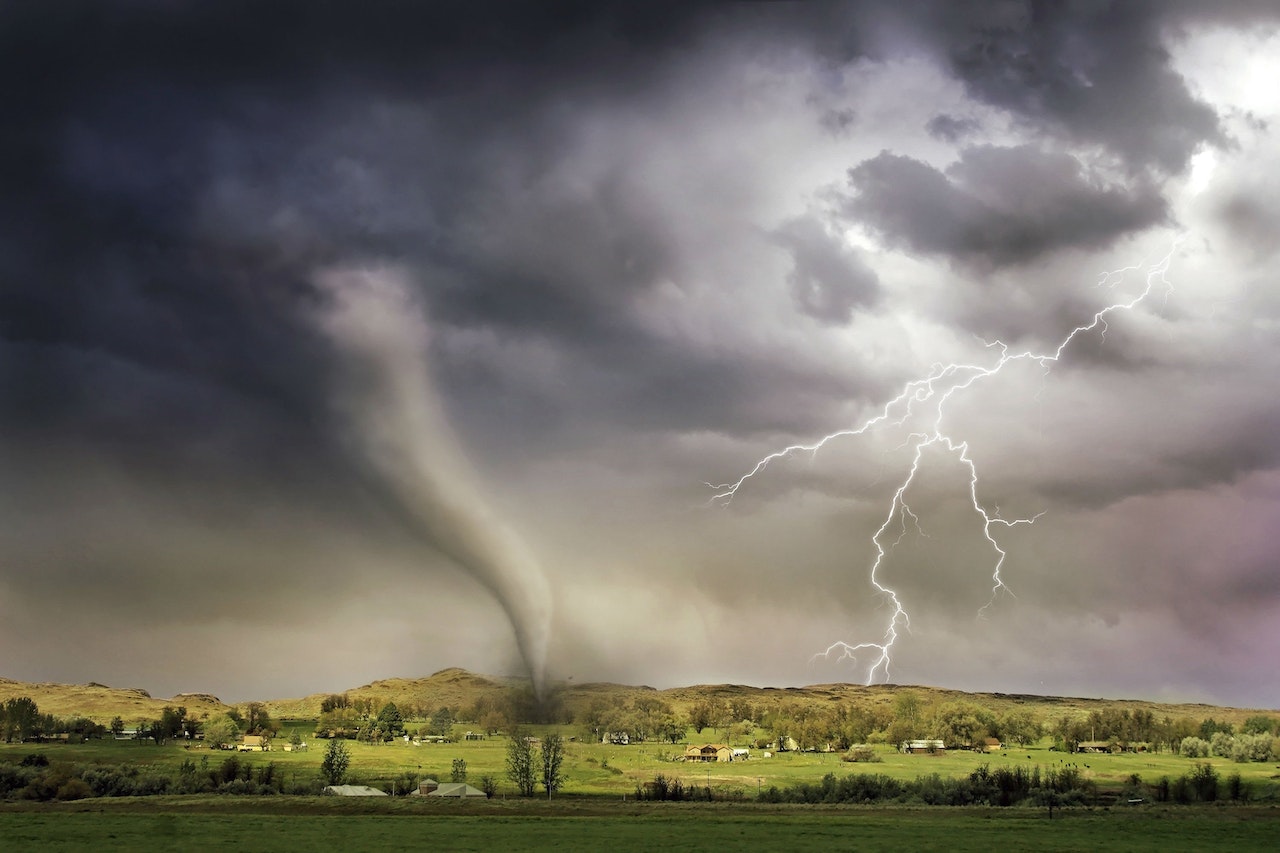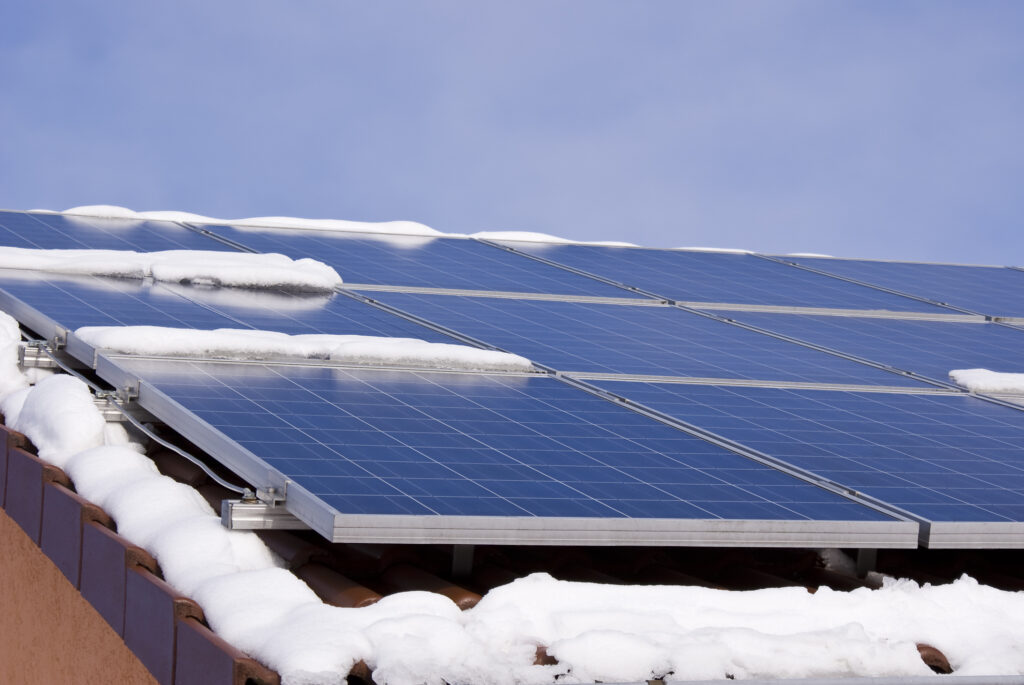

Can Solar Panels Withstand Intense Weather Conditions?

When the skies let loose and the winds begin to blow, many homeowners and business owners peer out the windows with a look of dread wondering if their solar panels will withstand the impending storm. The good news is that solar panels are designed to withstand a wide range of poor weather conditions. The not-so-good news is that Mother Nature can throw some curveballs into the equation, and some intense weather events have the potential to cause significant damage to your solar system.
Solera Energy wants to take the stress out of solar panel ownership so that you don’t panic every time it rains. Let’s explore the main weather concerns that solar panels face.
Hurricanes
Hurricanes rarely ever reach Arkansas or Missouri, and when they do, they usually downgrade into tropical storms by the time they reach the area. This means they can have wind speeds of between 39 mph and 73 mph. Well-built systems with sturdy mounting systems can withstand these types of winds. In fact, most are built to withstand wind speeds of up to 140 mph, so it’s rare for high winds and heavy rains to damage solar systems.
Hail
Giant pieces of ice slamming into glass at high speed is a recipe for disaster, right? Not always. Solar panels are engineered to incorporate high-tech glass that is durable and safe. Most companies test their glass using golf ball-sized hail (about 1-inch diameter) launched at more than 70 mph.
It’s not uncommon for solar panels to emerge from hail storms in better condition than the surrounding roofing structures. The exception is when the hail stones are larger than 1-inch or impact at greater speeds. Fortunately, this rarely happens because most hailstones fall at speeds ranging between 9 mph to 40 mph.
How Do Solar Panels Hold Up Against Snow?
Solar panels are surprisingly effective even in snowy conditions. Snow can actually benefit your solar panels by cleaning them as it melts, allowing for optimal exposure to sunlight. Solar panels are designed to withstand heavy snow loads and continue functioning after snow accumulation, making them suitable for cold, snowy climates. The cold temperatures often accompanying snow can improve solar panel efficiency, allowing them to generate more electricity.
- Snow-Shedding Design: Solar panels are installed at an angle, allowing snow to slide off naturally. Panels also retain heat, which can help melt snow more quickly than other surfaces.
- Durability in Snowy Conditions: Solar panels are tested for structural integrity and designed to endure up to 112 pounds per square foot, ensuring they can withstand heavy snowfalls.
Can Solar Panels Withstand Extreme Cold?

Surprisingly, solar panels perform exceptionally well in cold climates. Colder temperatures can enhance their efficiency. Solar panels are tested in cold environments to ensure their durability and are designed to endure sub-zero temperatures without compromising performance.
- Enhanced Efficiency in Cold Weather: Cold temperatures help reduce the resistance within solar cells, allowing them to produce electricity more efficiently compared to extremely hot conditions.
- Cold Climate Durability: Solar panels are engineered to survive in frigid climates, with many panels operating efficiently in temperatures as low as minus 40 degrees F. This makes them an excellent option for homeowners in cold regions.
Tornadoes
The typical EF0 or EF1 tornado has wind speeds of between 40 mph to 112 mph, which fall well below the standard solar panel wind rating of 140 miles per hour. Thus, the winds and debris blown by most tornadoes won’t damage solar panel systems. However, they can suffer damage if the tornado is an EF2 or higher. These tornadoes can pack wind speeds that can range from 113 mph to 318 mph and can cause significant damage to everything in their path, including solar systems.
About 1 in 5 tornadoes are rated EF2, and about 6% are rated EF3. Fortunately, EF4s account for just 1%, and EF5s are less than 0.1%. Thus, while some tornadoes can damage solar panels and solar batteries, these events are exceedingly rare, and thus there is minimal risk to solar systems in Arkansas and Missouri.
Can Solar Panels Endure Extreme Heat?
Yes, solar panels are built to handle extreme heat, making them a perfect fit for areas with hot climates. Solar panels use sunlight — not heat — to produce energy, meaning they can still function efficiently even in hot temperatures. However, it is important to note that while solar panels work best in sunlight, their efficiency can drop slightly when temperatures climb too high. Manufacturers take this into account by designing panels that can endure heat while maintaining efficiency.
- Durability in High Temperatures: Solar panels undergo rigorous testing to ensure they can withstand extreme heat, and most panels can function in temperatures ranging from minus 40 degrees F to 185 degrees F.
- Heat-Resistant Technology: The best solar panels are made with heat-resistant materials, ensuring they perform well even in scorching conditions.
Checking Your System After the Storm
All storms pass, and when the skies clear, it’s always advisable to inspect your solar panel system for damage. Cracks and scratches, delamination, and loose mountings can negatively affect solar panel performance. The good news is that these issues are usually minor and easily repairable if they are promptly addressed by a trained solar panel specialist. Once repaired, your solar panels and solar batteries will deliver the same safe, reliable, and clean power generation they did before the storm.
Choose Solera Energy for Solar Panel Installation
Solar panels are a durable, reliable energy solution, no matter the weather. From extreme heat to heavy snow and freezing cold, solar panels are designed to withstand the harshest conditions while continuing to generate clean energy. If you’re interested in solar panel installation for your Missouri or Arkansas home, let Solera Energy be your first call. We offer free consultations and can walk you through the available solar tax credits and rebates you could take advantage of. Call today to get started!
Do you have more questions about solar panels and the typical poor weather events they are subjected to in Arkansas and Missouri? Contact Solera Energy’s solar panel technicians to learn more!
Here’s Why Our Customers Love Us


